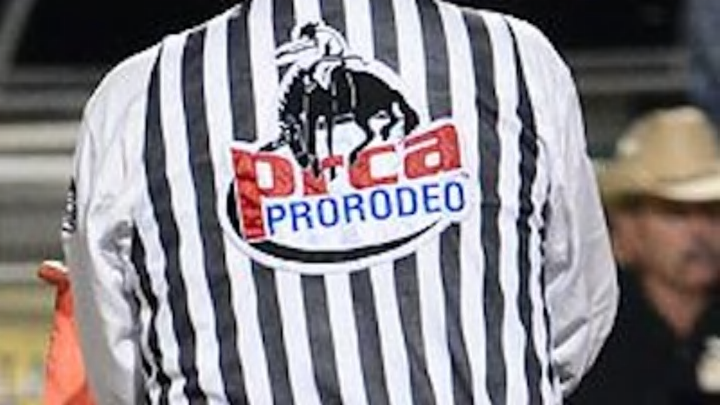Ridiculous Judging Call Potentially Costs Cowboy His Livelihood

The world of social media has the ability to share information almost instantly. In an industry where you could only see someone's performance at a rodeo if they sent you their video privately, this has changed the landscape significantly.
People all over the world can see nearly real-time action in the rodeo. This is something that the Cowboy Channel has also increased.
Viewed as both a positive and a negative, the coverage has also brought to light judgment calls. While some of the industry has made moves to implement technology to try to alleviate mistakes and give the cowboy the advantage, the Professional Rodeo Cowboys Association has lagged behind.
RodeoHouston decided to try Instant Replay technology but then didn't share the videos and or any explanation. It would be hard to declare the first trial at the rodeo a success without more information and certainly more transparancy. For instance, Shad Mayfield was flagged out for the "jerk down" rule but then no replay was provided or explained.
Recently, at the California Rodeo Salinas, a call was made in the tie-down roping competition that garnered immediate social media attention.
In the slack competition, Cash Hooper was disqualified by the judge, Harry Rose, after completing a successful run because his horse took a step backward after he remounted. After carefully watching the video provided, Hooper is encouraging the horse to go forward. The horse did not drag the calf, nor was there any abuse involved.
In the world of tie-down roping, horses are trained to keep the rope tight. If a calf is kicking, they will take another step backward. Throughout the entire run, the horse did not drag the calf. It is clear that the mare was doing her job. Hooper also did his as he completed the run, hustled back to his horse to remount and then tried to ride forward.
One step. The horse took one step. Apparently one step was enough for Mr. Rose to determine ill intention and worthy of being "flagged out" and disqualified. The controversy didn't stop there.
According to Hooper, Rose made the comment that, "We aren't in Oklahoma any more, son." Reading between the lines it would appear that the comment was to reference the fact that the rodeo is held in California and that must make a difference?
Hooper is from Texas. Not Oklahoma.
The PRCA rulebook does have a "No Dragging" rule. Here it is:
No Dragging of Animal. A neck rope must be used on the horse, and contestant must adjust rope and reins in a manner that will prevent horse from dragging animal. Contestant must receive no assistance of any kind from outside. If the horse drags the animal at least five feet, field judge may stop horse. The fine for unintentionally dragging an animal five feet but less than ten feet shall be $25. The fine for unintentionally dragging an animal ten feet or more shall be $100. Intentionally dragging an animal, regardless of distance, shall result in a $250 fine for each offense, plus possible disqualification. Intentional shall be defined as caused by contestant.
Does this video provide clear evidence that the drag was caused by the contestant? Also, a fine could have been issued, along with even a warning for the future without taking the extreme measure of disqualifying the cowboy. There is no question that the contestant seen in this video will and probably already has been fined. The amount of which is only known by the PRCA and Hooper.
Over the course of many years of competition, being from a long line of calf ropers, married to one and raising one, this seems extreme. The tie should always go to to the cowboy and in this case and from the evidence of this video, it appears that it did not.
The cowboys hand is on the horse's neck. He uses his feet to encourage the mare to go forward. The calf was ultimately on a loose rope, which is what the goal is - to allow the calf plenty of chance to get up if not tied properly.
Here in lies the question. Where is the accountability to the cowboys? Not from them, as they are already fined, disqualified, etc. When do the people, the judges, and the association have to answer to the cowboys. The ones that are paying their own entry fees, expenses, injuries, vet bills, and anything else that comes along?
If the technology isn't there to provide instant replay at every venue then why can't contestants submit video for review in extreme cases such as this? This is a pretty good video showing everything that happened within the confines of the run.
We are all humans. Humans make mistakes. Watching things happen in real-life speed is hard. Judging is hard. Judges also make mistakes. Without saying this is a mistake, what is abundantly clear here is that the cowboy is the one who ultimately suffers. The judges do not get fined. In fact, if the truth is told, they don't even have to be accountable to the contestants. They can make a mistake and then just ride off with no willingness to discuss.
There is weight in knowing that the judges decision is final. Everyone in rodeo knows that. What might also carry a lot of significance is if the cowboys knew that if a glaring error was made, a man would have the wherewithal to fix it. Most of the time cowboys are fined if they question a call. Shouldn't some answer be provided? Doesn't the cowboy deserve that much?
The answer of the location of the rodeo doesn't seem appropriate here. What if we all could just take a step back and watch the video to see if the call was, in fact, warranted - including Mr. Rose.
Here are the consequences. Hooper is currently ranked number 33 in the World Standings race in the tie-down roping. The 20-year-old cowboy is out on the road, trying to make a living doing what he obviously loves. He is in the top 50 and with the amount of time left in the year, he has the ability to get to the top 15 before the season cut off. Yes, a lot of things would have to go his way to have that happen, but it certainly is not out of the realm of possibilities.
Hooper made a 12.3-second run on his first calf in Salinas. The run in the video was his second go round competition. The disqualification took him out of the average race and certainly out of the chance to move on to the short round. No one can say what would have happened if he went on to the short round.
What can be stated is exactly what happened here. He was disqualified. Was it warranted? Should a fine have been issued instead of the harsh disqualification? Did the cowboy cause what happened? Was the cowboy given the benefit of the doubt? Should the PRCA implement a system to make sure the calls get made correctly? How many times does this happen on a regular basis? We will leave that up to you after careful review of the video.
